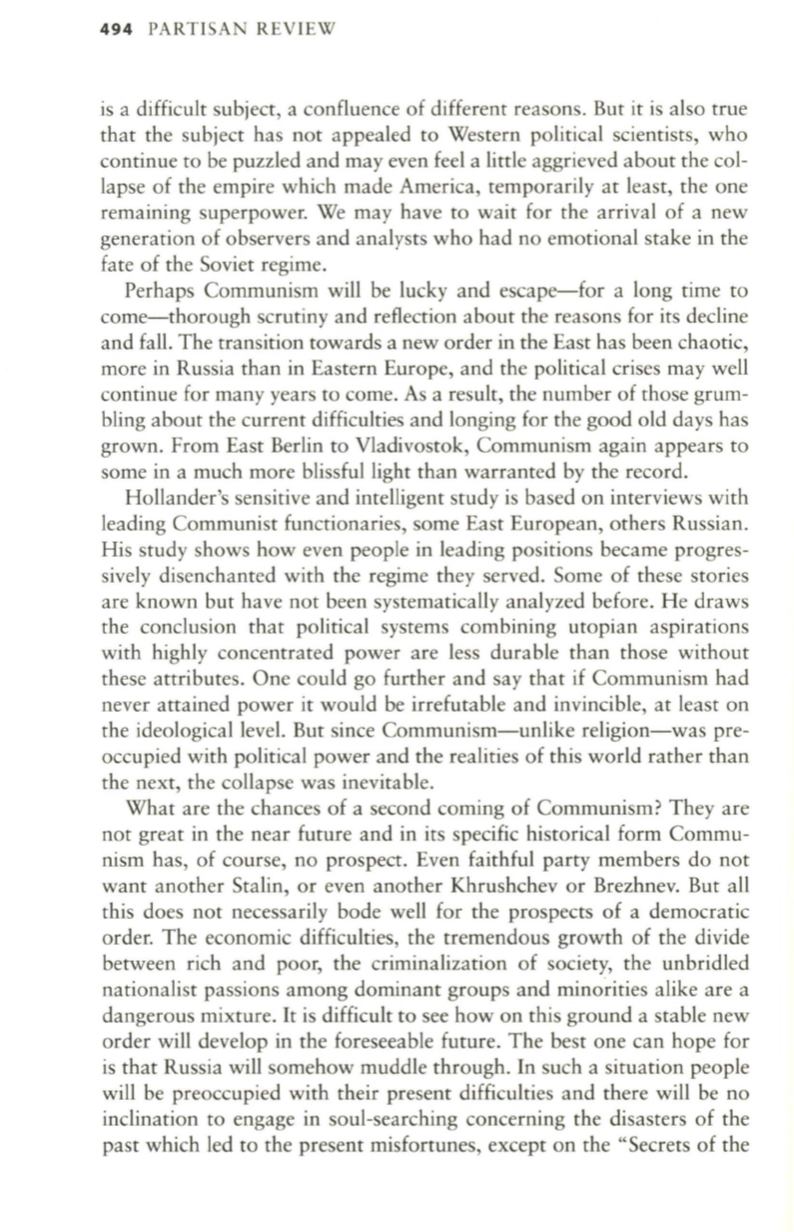
494
PARTISAN REVIEW
is a difficult subject, a confluence of different reasons. But it is also true
that the subject has not appealed to Western political scientists, who
continue to be puzzled and may even feel a little aggrieved about the col–
lapse of the empire which made America, temporarily at least, the one
remaining superpower. We may have to wait for the arrival of a new
generation of observers and analysts who had no emotional stake in the
fate of the Soviet regime.
Perhaps Communism will be lucky and escape-for a long time to
come-thorough scrutiny and reflection about the reasons for its decline
and fall. The transition towards a new order in the East has been chaotic,
more in Russia than in Eastern Europe, and the political crises may well
continue for many years to come. As a result, the number of those grum–
bling about the current difficulties and longing for the good old days has
grown. From East Berlin to Vladivostok, Communism again appears to
some in a much more blissful light than warranted by the record.
Hollander's sensitive and intelligent study is based on interviews with
leading Communist functionaries, some East European, others Russian.
His study shows how even people in leading positions became progres–
sively disenchanted with the regime they served. Some of these stories
are known but have not been systematically analyzed before. He draws
the conclusion that political systems combining utopian aspirations
with highly concentrated power are less durable than those without
these attributes. One could go further and say that if Communism had
never attained power it would be irrefutable and invincible, at least on
the ideological level. But since Communism-unlike religion-was pre–
occupied with political power and the realities of this world rather than
the next, the collapse was inevitable.
What are the chances of a second coming of Communism? They are
not great in the near future and in its specific historical form Commu–
nism has, of course, no prospect. Even faithful party members do not
want another Stalin, or even another Khrushchev or Brezhnev. But all
this does not necessarily bode well for the prospects of a democratic
order. The economic difficulties, the tremendous growth of the divide
between rich and poor, the criminalization of society, the unbridled
nationalist passions among dominant groups and minorities alike are a
dangerous mixture. It is difficult to see how on this ground a stable new
order will develop in the foreseeable future. The best one can hope for
is that Russia will somehow muddle through. In such a situation people
will be preoccupied with their present difficulties and there will be no
inclination to engage in soul-searching concerning the disasters of the
past which led to the present misfortunes, except on the "Secrets of the


